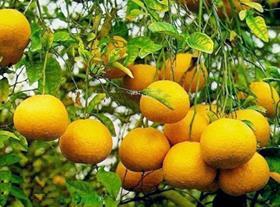
Pakistan’s fruit and vegetable exporters association (PFVA) has asked for government help to overcome barriers thwarting potentially lucrative exports, reports the Business Recorder.
PFVA head Waheed Ahmed wrote to Pakistan’s commerce minister Khurram Dastgir appealing for government intervention in a dispute at Karachi port that is delaying kinnow and potato shipments at the height of the export season.
Hundreds of containers of potatoes and kinnows were stranded awaiting dispatch on 30 December due to a clash between the Karachi Dock Labour Board and the Karachi Port Trust, which began four days earlier.
'The 'Go Slow Operation' which is going on at the sea ports… is adversely affecting the entire port vessel operation at East and West wharf thus casting bad shadow on export of kinnow and potato,' Ahmed said in his letter.
He explained that kinnow and potato exports generate “huge foreign exchange” for the country, therefore immediate action is urgently required to settle this issue so that export targets can be achieved.
Ahmed also mentioned export barriers preventing large volumes of kinnow being sold in Iran.
The Iranian market can accommodate 40,000 tonnes of Pakistani kinnow, he explained, but due to the non-issuance of import permits by Iran this huge quantity cannot be exported.
'The irony is that Iranian fruits are being imported by Pakistan without any quarantine requirements imposed by the DPP, a usual practice to be followed by all countries exporting fruits and vegetables to Pakistan,” he said.
Pakistani kinnows are consequently being squeezed out of the domestic market by Iranian apples, which generate greater retail profit, Ahmed explained.
'It's strongly recommended [Pakistan] implement quarantine requirements for fruits and vegetables from Iran, and the Iranian government [should] be approached for issuance of import permit to Pakistani importers so that the balance in trade can be maintained in wider interest of our country,' Ahmed wrote.
In his letter to the commerce minister, Ahmed also highlighted the prohibitive cost of lab test certificates required to export to the Indonesian market, and suggested the government put pressure on labs to reduce their fees.
He also stressed the importance of establishing a government-funded research and development facility in Pakistan, dedicated to developing seedless mandarin varieties for domestic production.
“To compete with China, it's imperative that the government of Pakistan must focus for establishment of Research and Development labs so as to explore new varieties like China and efforts be also made if such varieties can be made available during the months of November to June,” Ahmed proposed.
'We sincerely hope that the issues highlighted above would be addressed immediately so that exports of fruit and vegetables can be multiplied,' the letter concluded.



